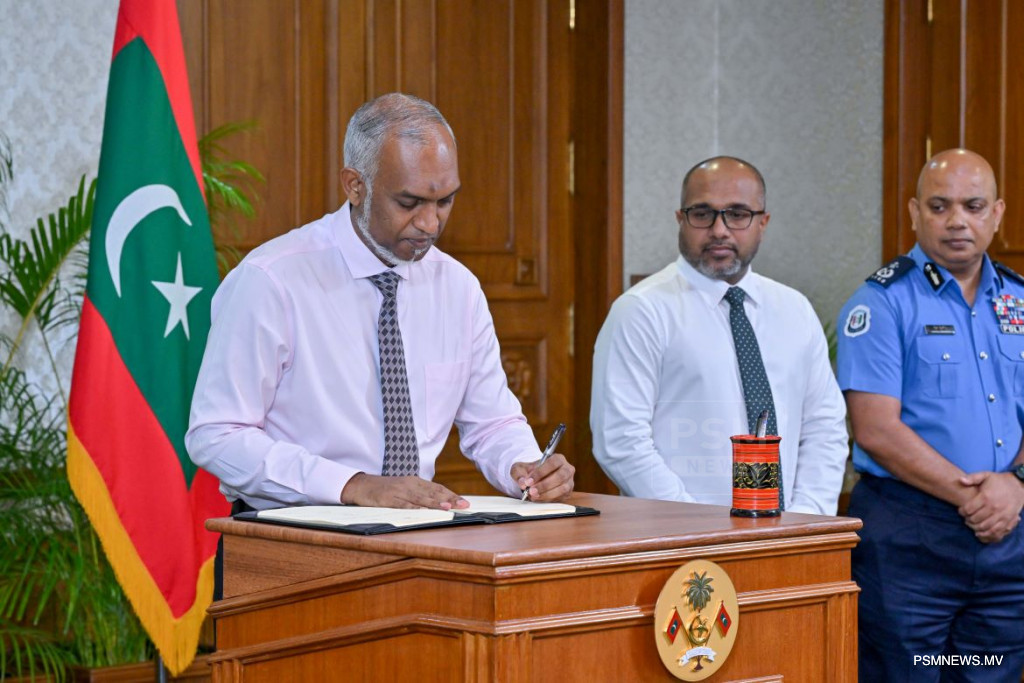
Maldives’ new anti-gang law came into effect on Monday, marking a decisive step in the nation's effort to combat organised crime and gang-related violence.
While previous legislation targeting gang activity, intimidation, and the possession of dangerous weapons has been in place since 2010, it has not produced effective results. The new Prevention of Gang and Other Serious Offences Act which came into effect on Monday, exactly three months after its ratification by President Dr Mohamed Muizzu in May, addresses these gaps and provides the stronger response the public has long called for.
The new law defines offences and penalties related to gang activity and serious organised crimes in the Maldives. It enhances law enforcement powers, introduces measures to protect children from gang involvement, and establishes systems to monitor and manage high-risk individuals. The Act also lays out a broader framework for prevention and enforcement measures.
According to the new law, founding and operating an organised criminal group has been designated as a criminal offence, which carries a 25-year prison sentence and a fine between USD13,000 and USD650,000. Aiding and abetting an organised criminal group will carry an 18-year prison sentence along with a fine between USD6,500 and USD325,000.
Recruitment to an organised criminal group has also been specified as a criminal offence with a 20-year prison sentence and a fine between USD6,500 and USD455,000. Child recruitment has been declared a more serious offence, which carries a 25-year prison sentence and a fine between USD13,000 and USD650,000.
Aiding and abetting recruitment and intimidating witnesses are also criminal offences under the new law.
The law also carries a fine between USD6,500 and USD6.5 million for legal entities for any involvement in organised crime.
The Prosecutor General can pursue seizure of ill-gotten assets and funds of organised criminal groups and individuals associated with such groups through the courts, according to the law.
The new law provides for severe penalties for murder, assault, kidnapping, intimidation and serious physical injury resulting in the use of a weapon with the death penalty reserved for murder while those who commit other crimes face large fines and long prison sentences.
It also gives law enforcement authorities the power to stop, search and arrest a person without a warrant if suspected of committing serious organised crimes, crimes using weapons, possession of weapons, manufacture, and importation of such weapons. In addition, the law will give enforcement agencies wide-ranging powers to prevent such crimes.
Despite harsh penalties, the new law also aims to rehabilitate those involved in such crimes and assist in their reintegration back to society, along with establishing special mechanisms to monitor such individuals.
